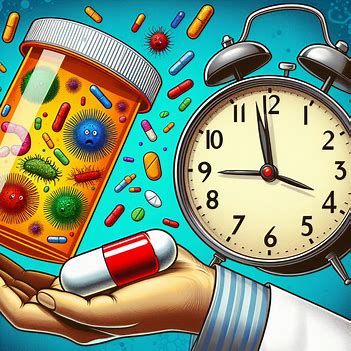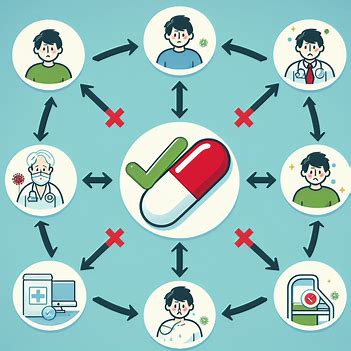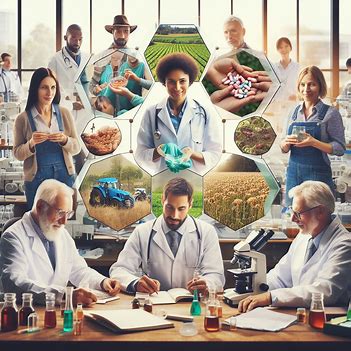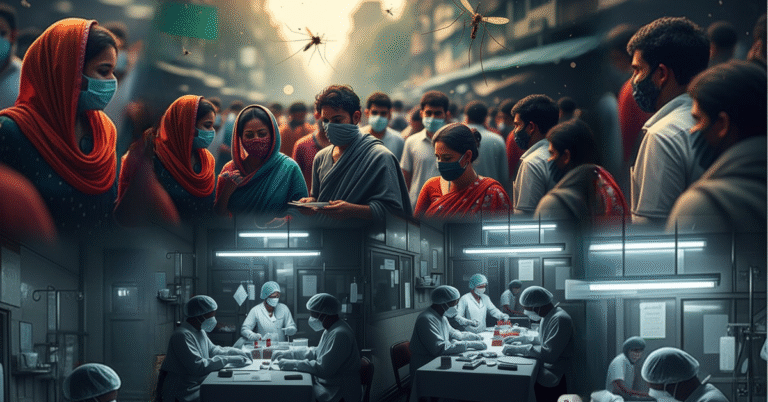The term “antibiotic resistance” often conjures images of monstrous bacteria impervious to all our defences. While superbugs are a real threat, the story of antibiotic resistance is far more nuanced. This article dives deeper, exploring the causes, consequences, and potential solutions to this growing public health crisis..
Beyond Superbugs: A Multifaceted Problem

The Rise of Hospital-Acquired Infections: Overcrowded hospitals and frequent antibiotic use create breeding grounds for resistant bacteria.
The Global Antibiotic Chain: The widespread use of antibiotics in agriculture can also contribute to resistance, as these drugs can reach the environment and water sources
A domino effect unfolds when antibiotics lose their effectiveness:
Increased Treatment Difficulty: Common infections become harder to treat, requiring stronger antibiotics with potentially harsher side effects.
Longer Hospital Stays: Treatment becomes more complex, leading to longer hospital stays, increased healthcare costs, and a strain on medical resources.
The Looming Threat of Untreatable Infections: The worst-case scenario is the emergence of truly untreatable infections, leading to a potential medical dark age where even minor injuries become life-threatening.

Breaking the Cycle: A Collaborative Effort
Combating antibiotic resistance requires a multi-pronged approach at the individual, healthcare system, and global levels:
 Stewardship: Doctors need to prescribe antibiotics judiciously and only when truly necessary. Patients play a vital role by taking antibiotics as prescribed and never sharing them with others.
Stewardship: Doctors need to prescribe antibiotics judiciously and only when truly necessary. Patients play a vital role by taking antibiotics as prescribed and never sharing them with others.Infection Prevention: Rigorous handwashing, proper hygiene in hospitals, and responsible use of antibiotics in agriculture are crucial to prevent the spread of resistant bacteria.
Antibiotic Development: Research and development of new antibiotics and alternative treatment strategies are essential to stay ahead of resistance.
Beyond the Doctor’s Orders: Your Role in the Fight
You too can be part of the solution! Here’s how:
-
- Talk to your doctor: Discuss the need for antibiotics before taking them. Never pressure your doctor for antibiotics for viral infections.
-
- Complete the full course: Don’t stop taking antibiotics just because you feel better.
-
- Practice good hygiene: Frequent handwashing and proper sanitation are key to preventing infections in the first place.
-
- Support responsible farming: Look for meat raised without routine antibiotic use.
-
- The Future of Antibiotics: A Race Against Time
Antibiotic resistance is a ticking time bomb. By understanding the science, adopting responsible practices, and supporting research, we can prevent this looming shadow from becoming a reality. Remember, it’s not just about superbugs – it’s about the future of healthcare for everyone. Let’s work together to ensure antibiotics remain a powerful tool in our fight against infections.
References:
-
- Centres for Disease Control and Prevention (CDC): https://www.cdc.gov/drugresistance/index.html
-
- World Health Organization (WHO): https://www.who.int/health-topics/antimicrobial-resistance



